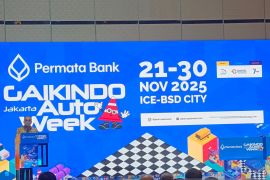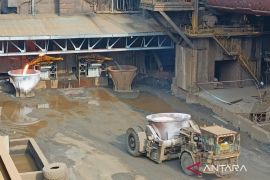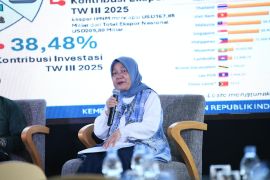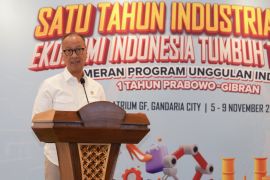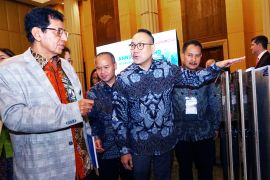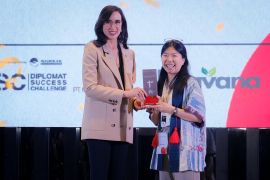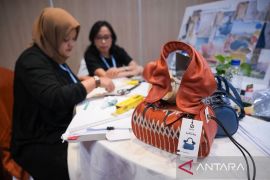Currently, Indonesia is still importing downstream processed cocoa products so we need to push for downstream production...Jakarta (ANTARA) - The Industry Ministry has continued to encourage the development of the processed cocoa downstream industry as Indonesia is the third-largest exporter of processed cocoa products globally and contributes 9.17 percent to the global market share .
"We have the opportunity to develop our processed cocoa industry, especially for the downstream. Currently, Indonesia is still importing downstream processed cocoa products so we need to push for downstream production in order to reduce imports," the ministry's director general of agro industry, Putu Juli Ardika, informed in a statement released on Saturday.
According to the ministry, Indonesia is currently the seventh-largest cocoa producer in the world and ranked third as a processed cocoa producer after the Netherlands and Ivory Coast, based on data from the International Cocoa Organization (ICCO) for 2022–2023.
"The Indonesian processed cocoa industry plays an important role in the global supply chain and is a contributor to the national economy and the country's foreign exchange earnings, with the export value of processed cocoa products at more than US$1 billion per year to major markets such as the United States, the European Union, India, and China," Ardika said.
He added that the volume of cocoa liquor, cocoa butter, cocoa cake, and cocoa powder exports is pegged at 327,091 tons or 80 percent of total national production, and these products are shipped to 96 countries.
Besides processed cocoa products, chocolate products have also started to contribute to exports with their value reaching US$76 million. The export value of chocolate products in 2022 increased by 9.59 percent compared to 2021, he pointed out.
Ardika said that Indonesia's intermediate cocoa manufacturing and processing capabilities have managed to attract investment from 11 leading cocoa producers from around the world. The cocoa industries employ approximately 2,500 direct workers and have a production capacity of 739,250 tons per year for cocoa butter, cocoa liquor, cocoa powder, and cocoa cake, he added.
Meanwhile, in the downstream cocoa processing industry, there are 900 chocolate processing companies with a nameplate capacity of 462,126 tons per year, he informed.
To encourage the development of the cocoa and chocolate industry in Indonesia, especially the downstream industry, the ministry is conducting a program called Artisan Chocolate and Indonesian Craft Chocolate for the World, and it will remain one of the priority programs in the future, Ardika informed.
"We have developed main programs starting from facilitating entrepreneurship, supporting research and development (R&D) and innovation, implementing Industry 4.0, and most importantly, carrying out international promotion and branding to promote Indonesian artisan chocolate," he said.
So far, there are 31 Indonesian artisan chocolate producers exploring 600 different and unique types of Indonesian chocolate flavors. The artisans process cocoa into chocolate products on a bean-to-bar basis with a capacity of 1,242 tons per year, Ardika informed.
"The market share for artisan chocolate is only 1.3 percent of the potential 10 percent of the chocolate market in Indonesia, (so) room for development is still open," he said.
Furthermore, he highlighted that artisanal chocolate products have high added value as they use high-quality cocoa beans as raw materials and sell at premium prices. For instance, artisan chocolate products have an added value of 700–1,500 percent, while regular chocolate products have an added value of 100–300 percent.
"Artisan chocolate producers are also implementing sustainability and traceability programs for cocoa beans to meet foreign market requirements, such as the European Union Deforestation Regulation (EUDR)," he said.
Translator: Ade Irma J, Resinta S
Editor: Azis Kurmala
Copyright © ANTARA 2023

